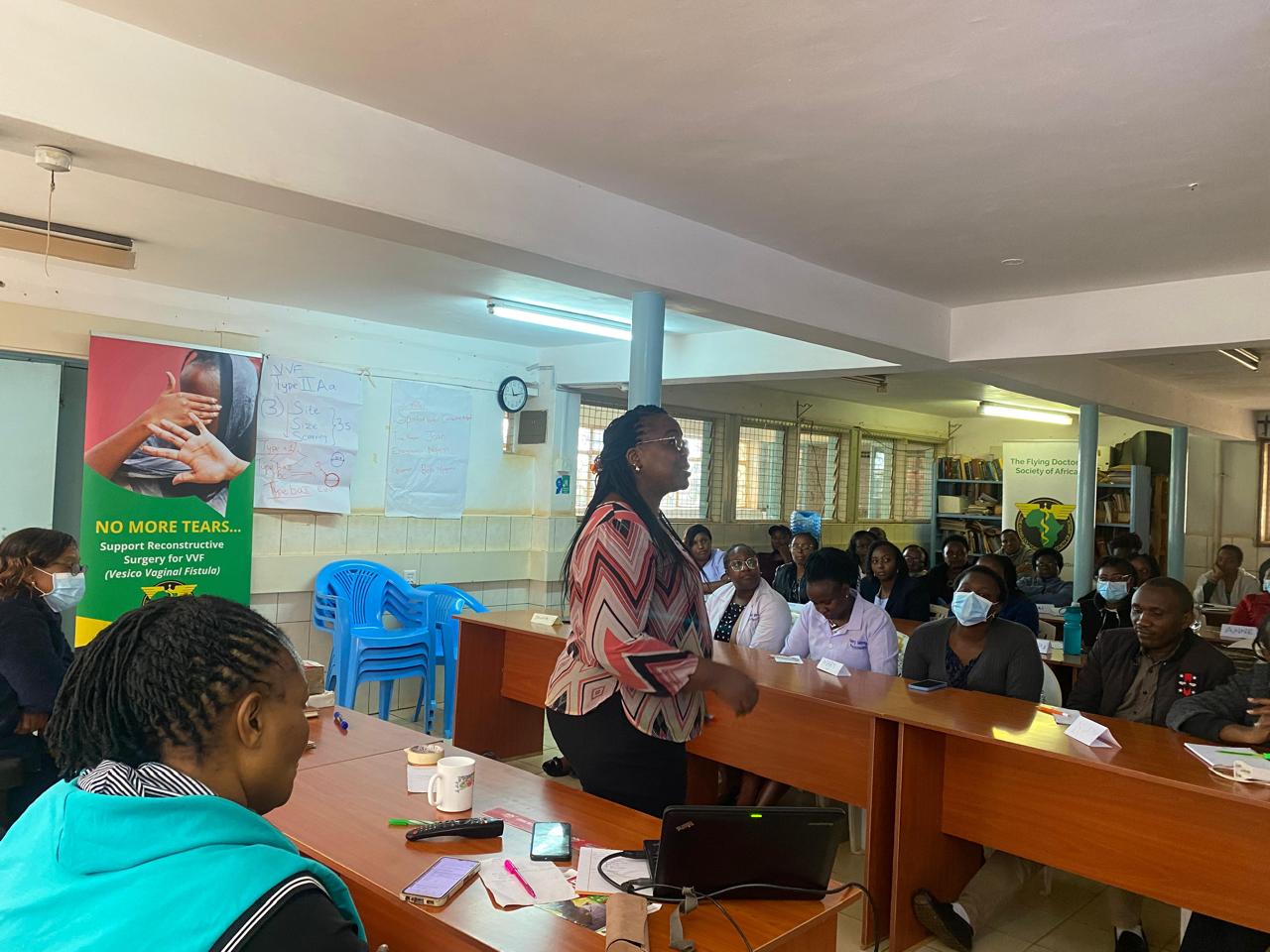 A team of dedicated doctors, nurses, and volunteers from the Flying Doctors Society who are part of the mission. /FLYING DOCTORS
A team of dedicated doctors, nurses, and volunteers from the Flying Doctors Society who are part of the mission. /FLYING DOCTORSWomen and girls living with obstetric fistula in Migori County have been urged to turn up for free treatment during a two-week medical camp at Migori County Referral Hospital.
The camp, organised by the M-Pesa Foundation in partnership with the Flying Doctors Society of Kenya, AMREF, and the county government, started on Friday, September 26, and will run until October 10, 2025.
“Let us encourage as many women as possible to turn u,p and also look to community groups to mobilise those in neighbouring counties to seek treatment. Fistula is indeed treatable. We have seen thousands of women get a new lease of life after years of pain and isolation,” M-Pesa Foundation chairman Nicholas Ng’ang’a said.
Obstetric fistula is a devastating childbirth injury that occurs when prolonged and obstructed labour tears the birth canal, leaving women incontinent and often socially stigmatised.
The condition is most prevalent in remote areas where access to quality maternal care is limited.
In counties like Migori, harmful cultural practices such as Female Genital Mutilation (FGM) and early marriages further expose young girls to obstructed labour, increasing the risk of fistula.
For many survivors, the stigma and isolation are as damaging as the physical effects.
The camp in Migori offers not just medical care but also a renewed chance for women to reclaim their lives.
Successful treatment can mean a return to normal life—free from pain, isolation, and stigma associated with the involuntary passage of stool.
According to the World Health Organisation, more than two million women globally live with untreated fistula, most of them in sub-Saharan Africa and Asia.
In Kenya, the Ministry of Health estimates that between 3,000 and 6,000 new cases occur each year, yet only a fraction receive treatment due to poverty, shame, or lack of awareness.
In rural settings, many women hide their condition for years out of fear of rejection.
Health experts note that beyond surgery, community education is vital in breaking the silence around fistula.
Awareness drives, like the one in Migori, aim to restore dignity, hope, and a return to normal life for tens of women and girls.
The camp is expected to benefit more than 120 women through surgeries, screening, and treatment.
It also forms part of M-Pesa Foundation’s 15th anniversary celebrations, which have seen similar initiatives in Kisii, Nyeri, and Busia this year alone, helping over 300 women.
Since the programme began in 2021, more than 1,000 women across counties, including Bungoma, Kilifi, Garissa, Makueni and Nairobi have undergone surgery to repair fistula.














